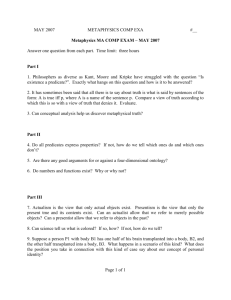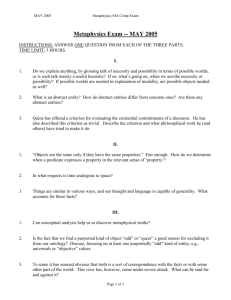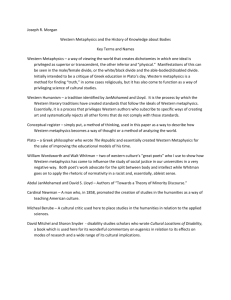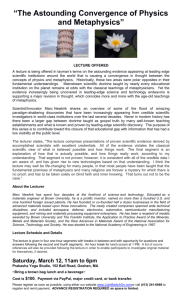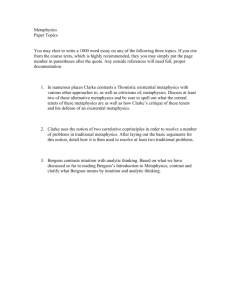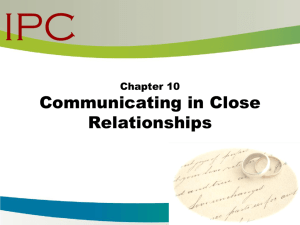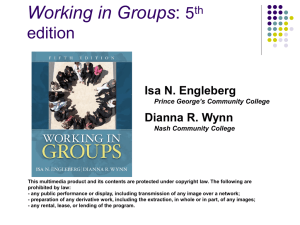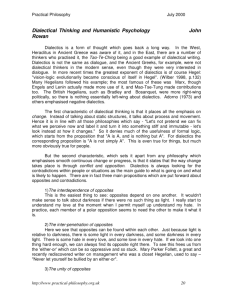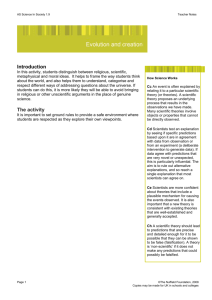Spirituality and Dialectics is a rigorous and passionate argument
advertisement
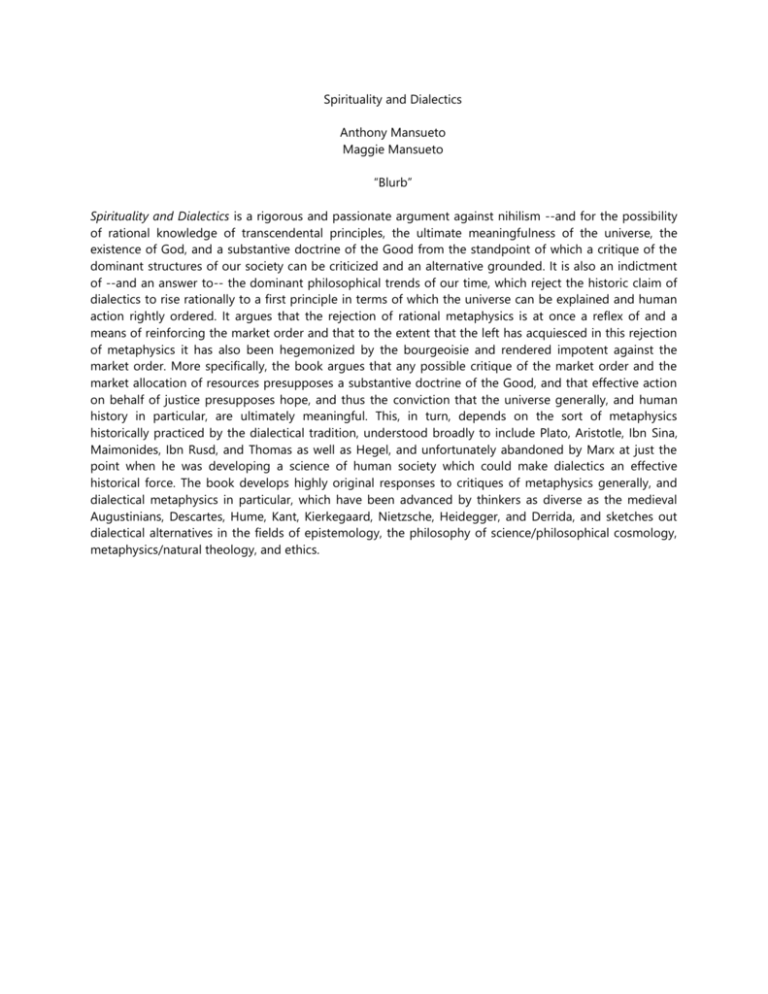
Spirituality and Dialectics Anthony Mansueto Maggie Mansueto “Blurb” Spirituality and Dialectics is a rigorous and passionate argument against nihilism --and for the possibility of rational knowledge of transcendental principles, the ultimate meaningfulness of the universe, the existence of God, and a substantive doctrine of the Good from the standpoint of which a critique of the dominant structures of our society can be criticized and an alternative grounded. It is also an indictment of --and an answer to-- the dominant philosophical trends of our time, which reject the historic claim of dialectics to rise rationally to a first principle in terms of which the universe can be explained and human action rightly ordered. It argues that the rejection of rational metaphysics is at once a reflex of and a means of reinforcing the market order and that to the extent that the left has acquiesced in this rejection of metaphysics it has also been hegemonized by the bourgeoisie and rendered impotent against the market order. More specifically, the book argues that any possible critique of the market order and the market allocation of resources presupposes a substantive doctrine of the Good, and that effective action on behalf of justice presupposes hope, and thus the conviction that the universe generally, and human history in particular, are ultimately meaningful. This, in turn, depends on the sort of metaphysics historically practiced by the dialectical tradition, understood broadly to include Plato, Aristotle, Ibn Sina, Maimonides, Ibn Rusd, and Thomas as well as Hegel, and unfortunately abandoned by Marx at just the point when he was developing a science of human society which could make dialectics an effective historical force. The book develops highly original responses to critiques of metaphysics generally, and dialectical metaphysics in particular, which have been advanced by thinkers as diverse as the medieval Augustinians, Descartes, Hume, Kant, Kierkegaard, Nietzsche, Heidegger, and Derrida, and sketches out dialectical alternatives in the fields of epistemology, the philosophy of science/philosophical cosmology, metaphysics/natural theology, and ethics.



